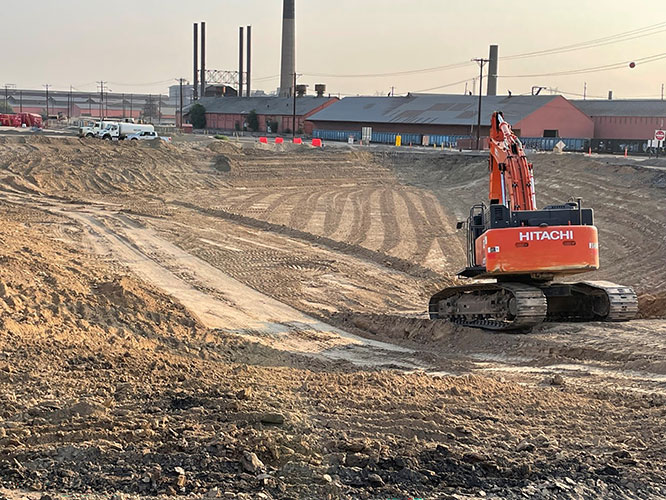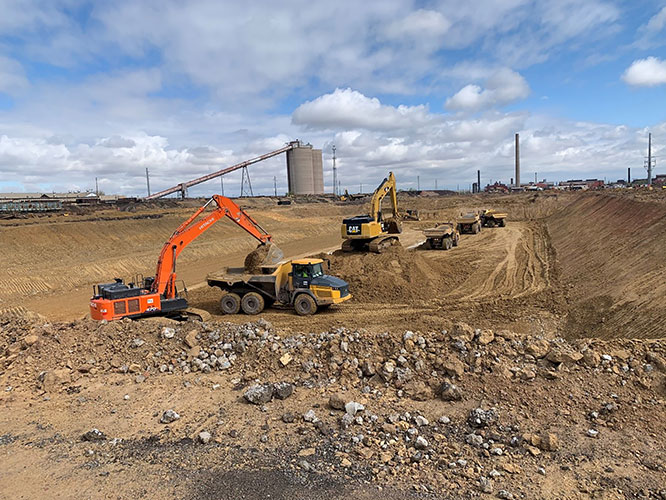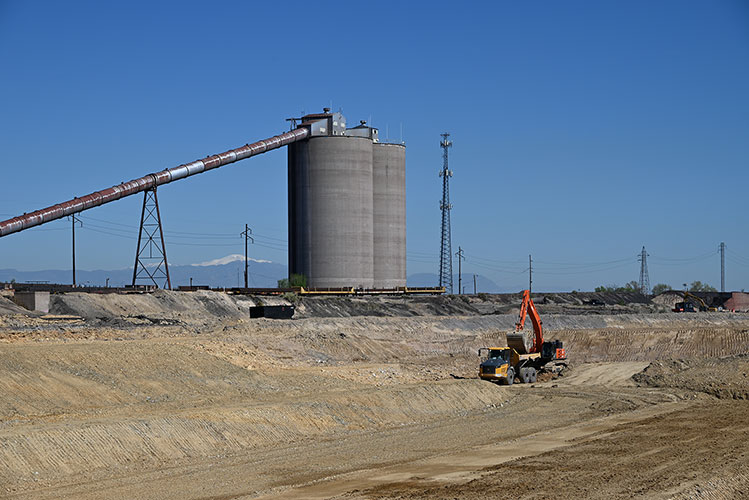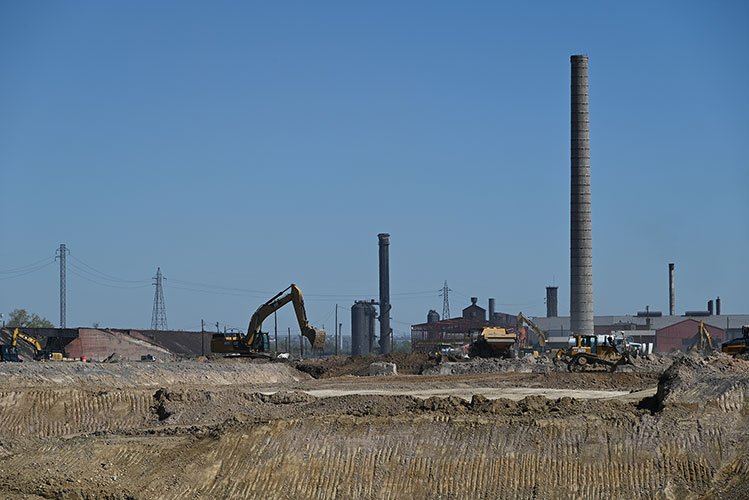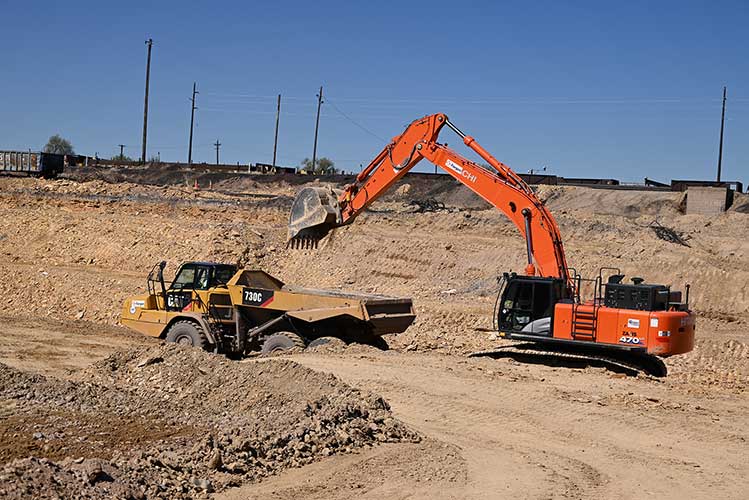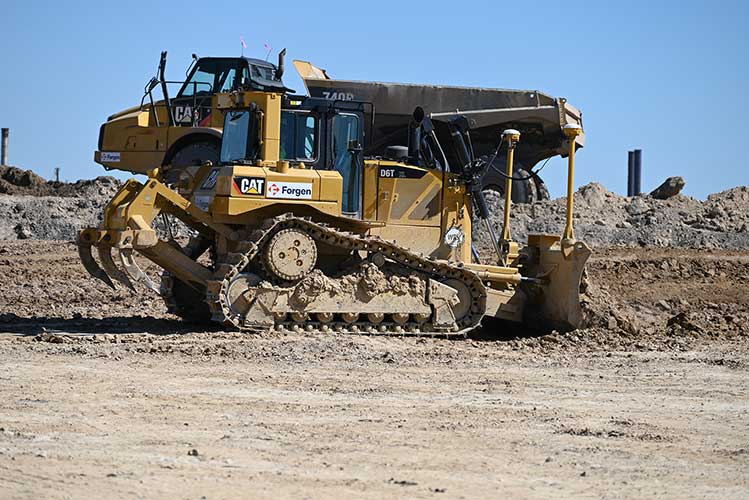Former Industrial Site Prep and Hazardous Material Remediation
Challenge
Our client initiated this project in 2020 with the goal of constructing a rail-rolling facility as an addition to their steel mill in Pueblo, CO. Local economic officials emphasized that the facility would create over 1,000 jobs for the next 50 years and reinforce Pueblo’s reputation as “Steel City,” a title it had earned through its industrial history.
Pueblo, founded in 1880, developed around the construction of a blast furnace that generated jobs and spurred land development. In 1882, the plant produced its first rail, which was used on the Animas Canyon route. The last 100 miles of the Burlington Railroad’s new line were laid with rails and fastenings made at Pueblo’s Steelworks.
Pueblo’s identity is deeply rooted in the steel industry, and both our client and the community were excited about the facility expansion in the city. However, several challenges hindered the construction, including legacy site remediation, asbestos-containing material, contaminated/hazardous soils, the need for an access road on site, and complications due to the COVID-19 pandemic. These challenges were further complicated by the need for groundwater control and dewatering during the heavy civil construction project.
Solution
With our client aiming for expansion, they contracted us to carry out the initial site preparation and hazardous material remediation of a former coke plant. This was a critical step for the construction of the new rail-rolling facility on this industrial site.
We undertook comprehensive site mobilization and demobilization, and excavated and removed asbestos material as part of the legacy site remediation. Our team handled the demolition of existing structure foundations and managed contaminated material excavation and removal, focusing on effective material disposal. This included mass soil excavation and structural backfilling. We moved approximately 60,000 cubic yards of contaminated material offsite or to a controlled stockpile onsite, ensuring proper handling and disposal. We transported asbestos-contaminated material in double-lined, wrapped trucks to a licensed landfill, and hazardous material was placed into roll-offs for offsite hauling. Our total mass excavation efforts involved around 210,000 cubic yards.
In addition to demolition of building foundations, footers, and utilities, we managed crushed onsite approximately 59,000 cubic yards of concrete that could be used for onsite backfill. Groundwater control and dewatering were essential throughout the project to prevent contamination spread and ensure safe excavation and material disposal.
Our work prepared the former steel mill site for redevelopment, creating a foundation for the client to install a rail mill with a production capacity of 650,000 short tons of steel per year. The new facility will produce rails up to 320 feet in length with an output of 150 tons per hour for freight and passenger railroads.
Results
Despite significant challenges in hazardous material management and heavy civil construction, Forgen demonstrated expertise in environmental remediation. We delivered a result that met the client’s expansion goals and supported the community. Our work on this industrial site included effective legacy site remediation, groundwater control, and dewatering, ensuring the safe handling and disposal of materials. This project not only facilitated the construction of the new facility but also contributed to job creation and environmental sustainability in Pueblo.







